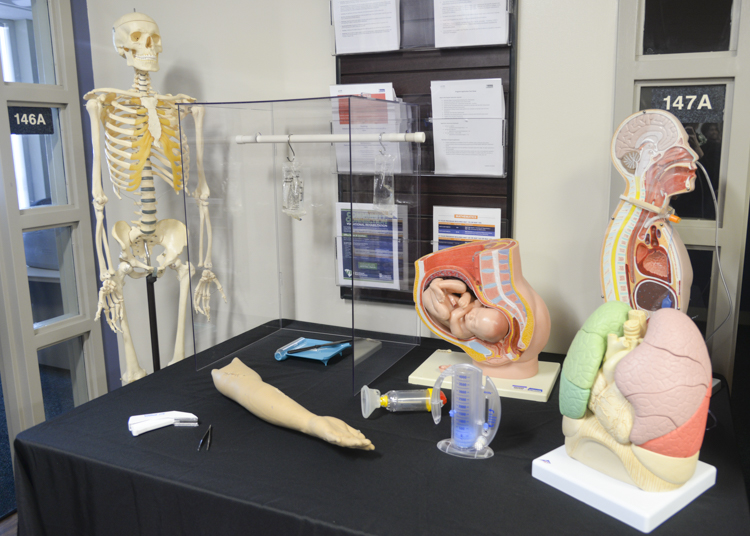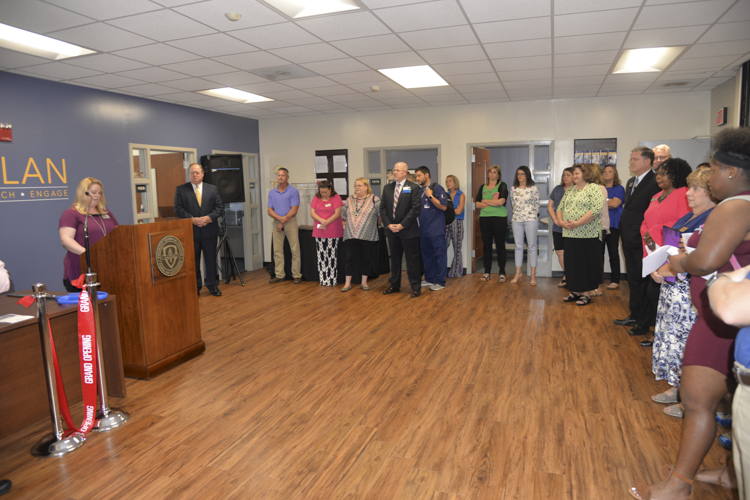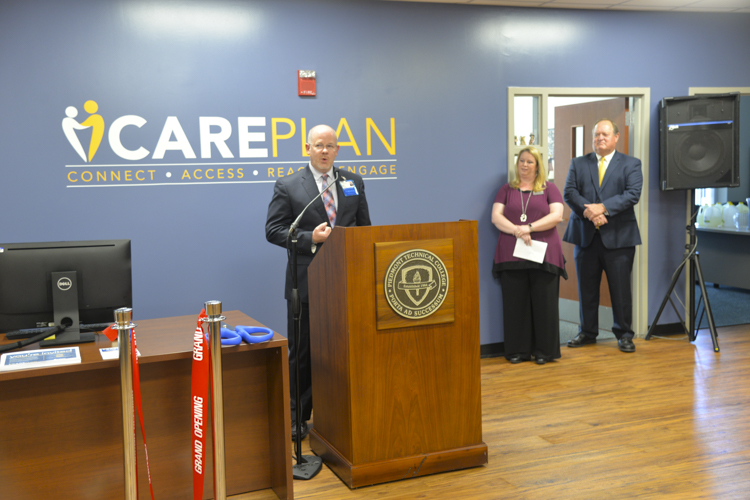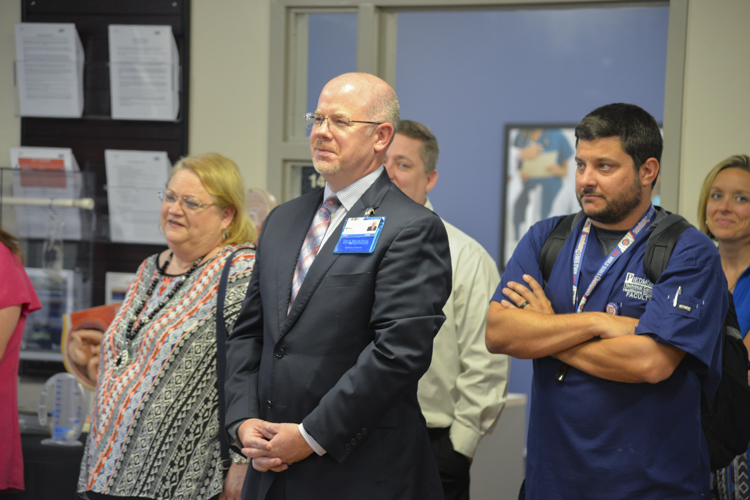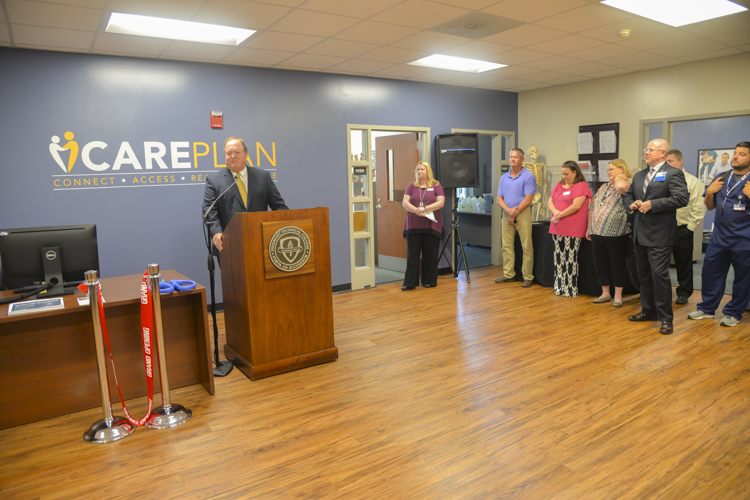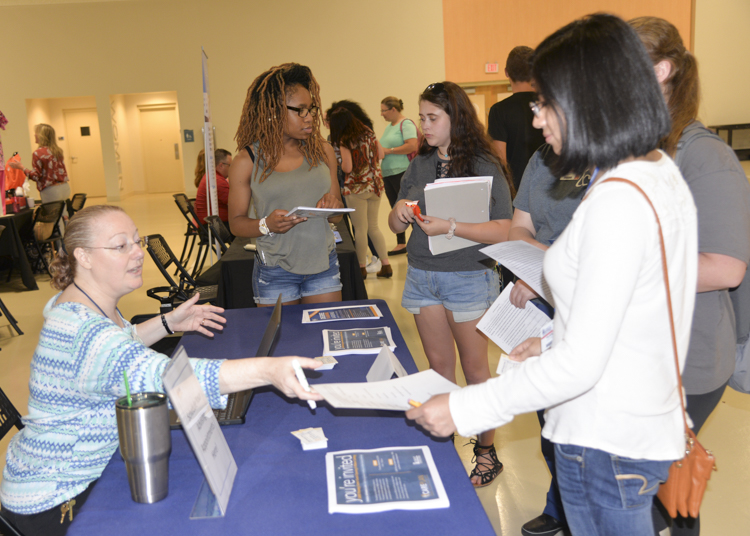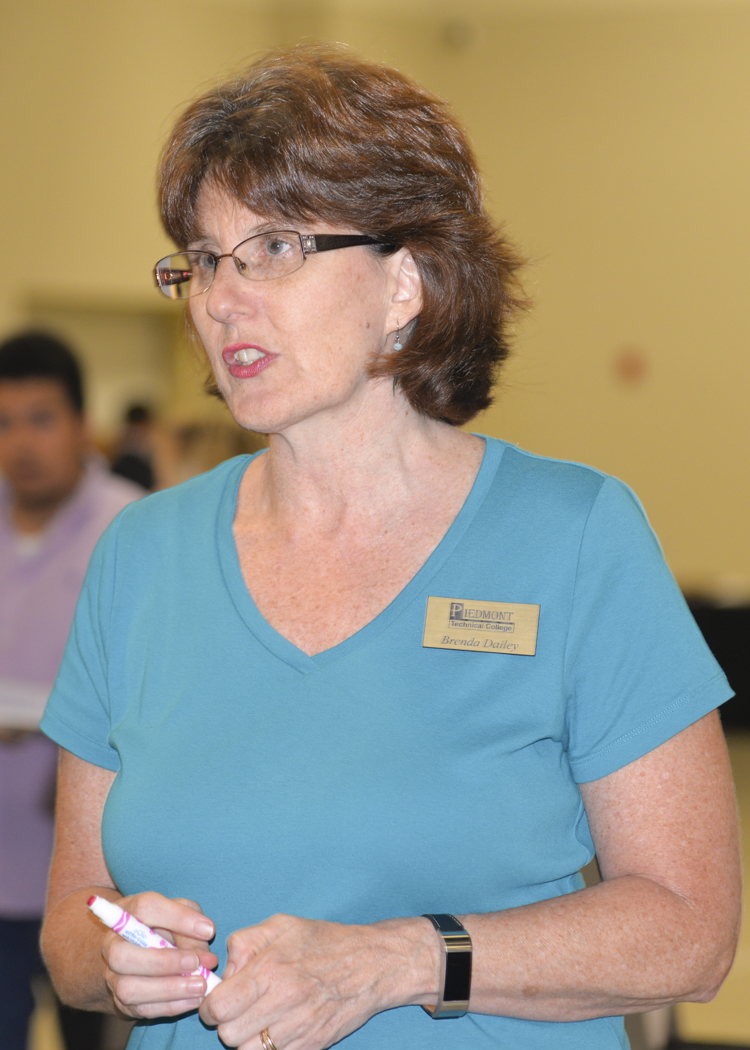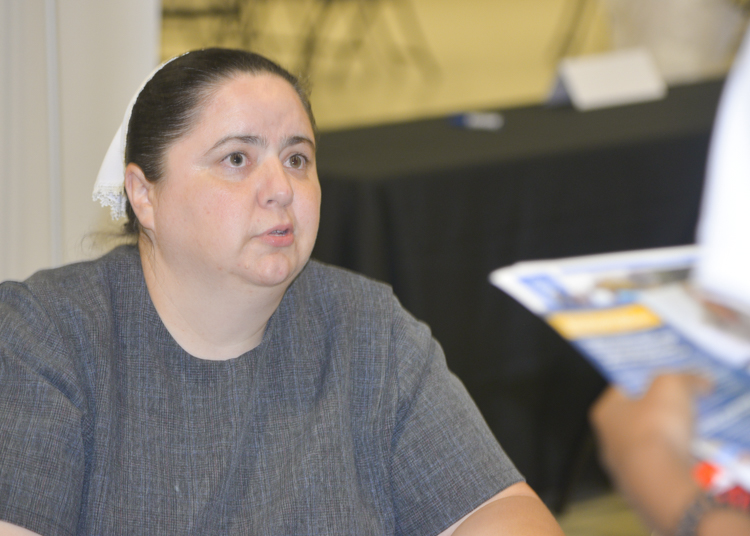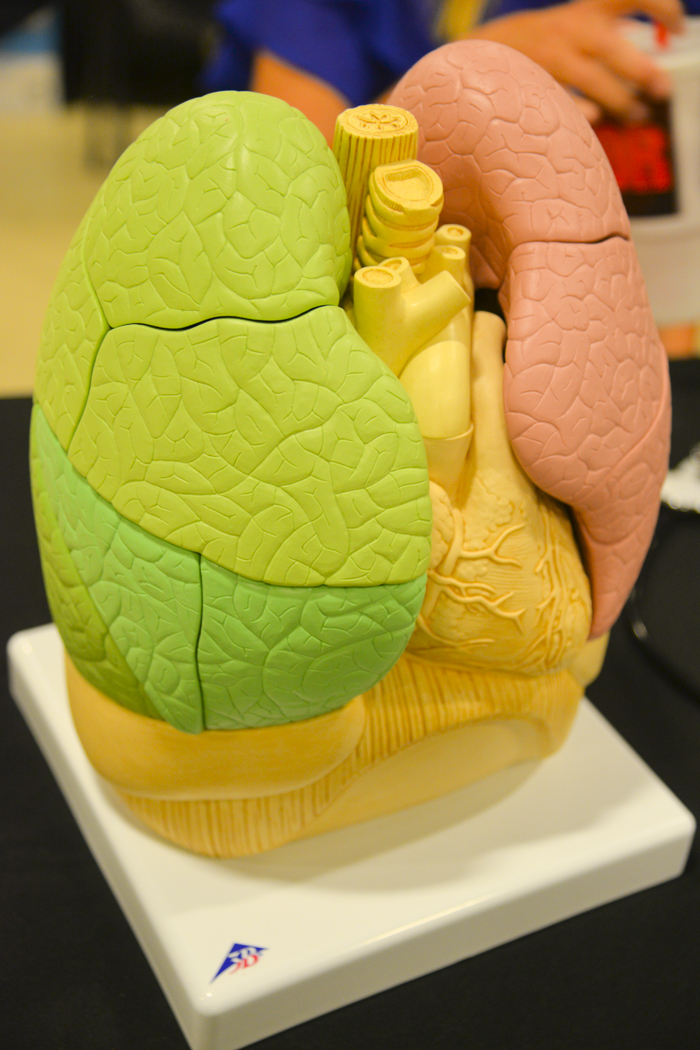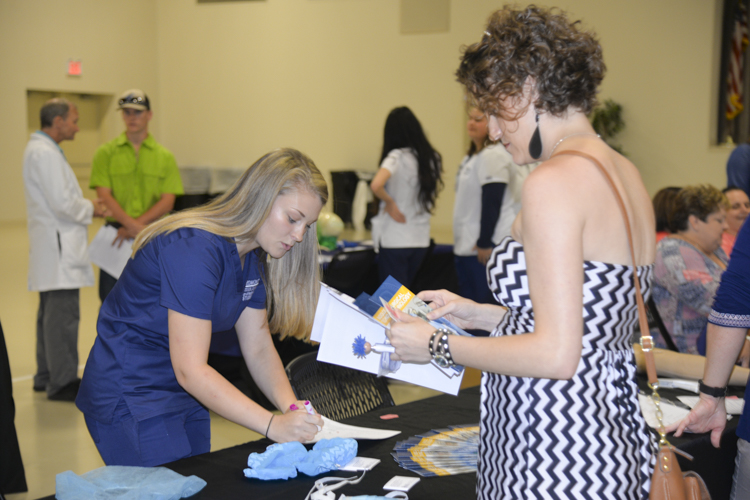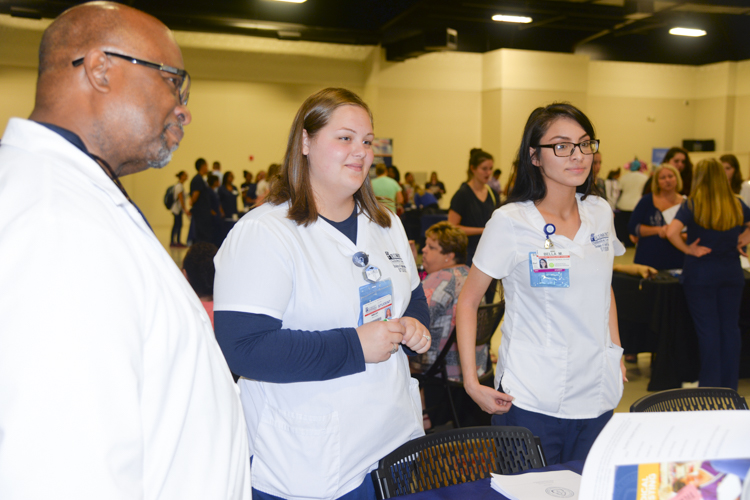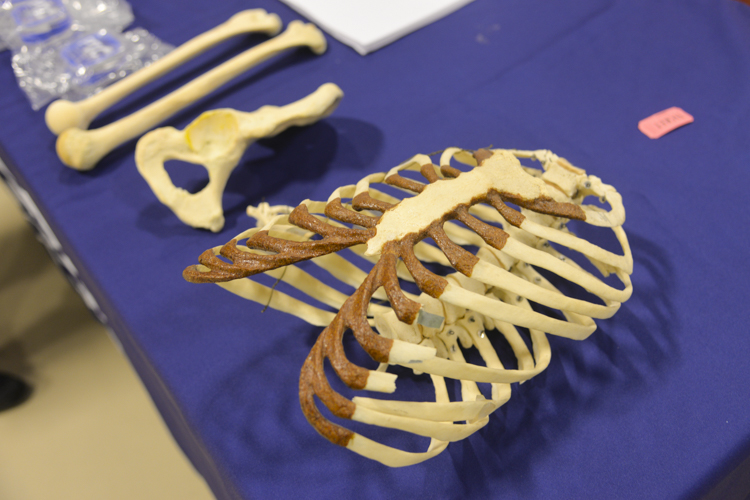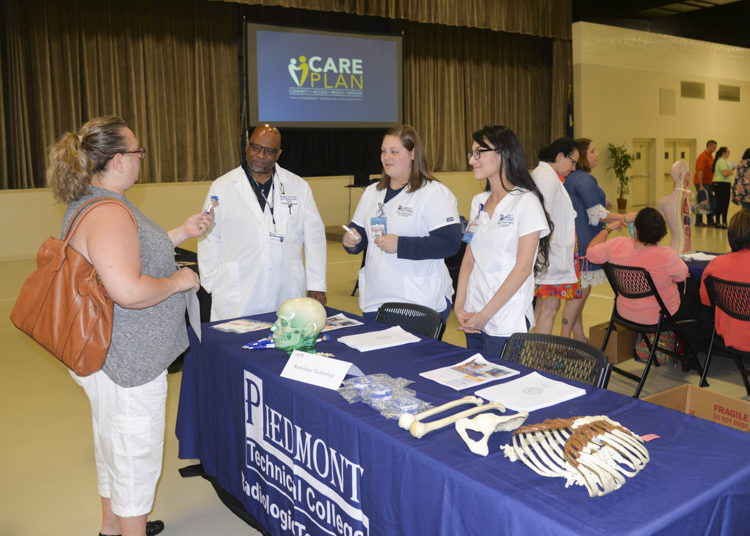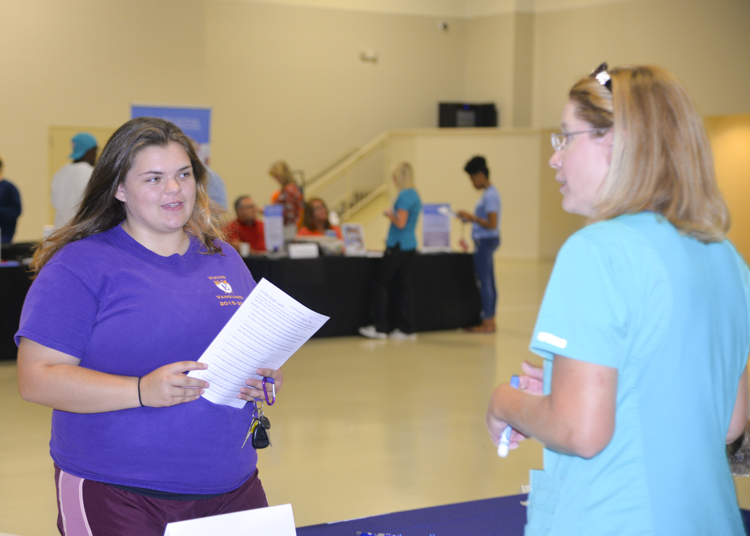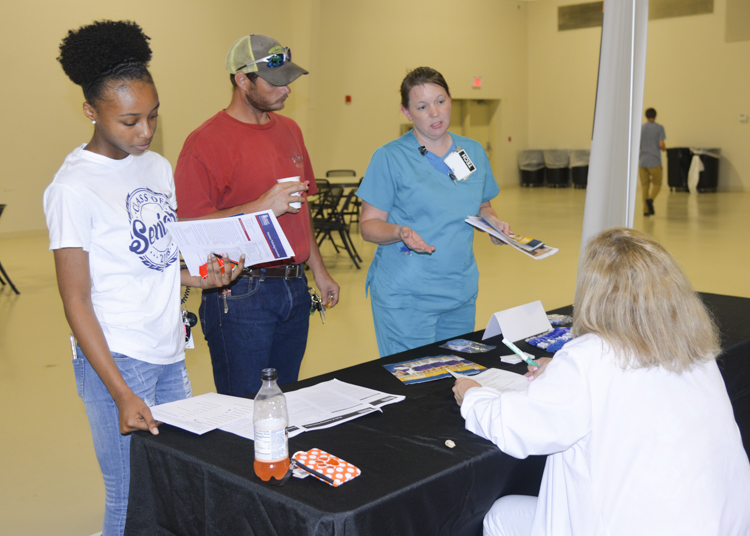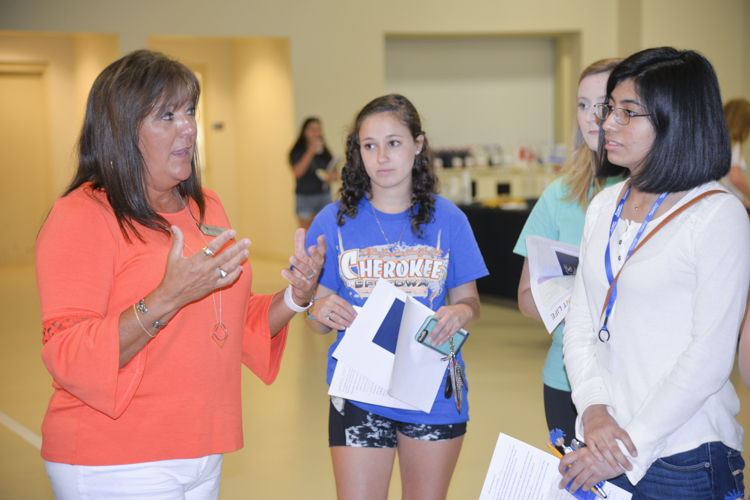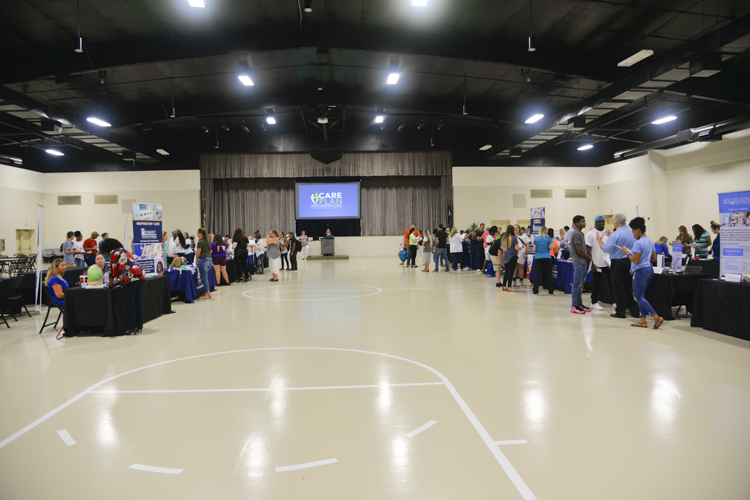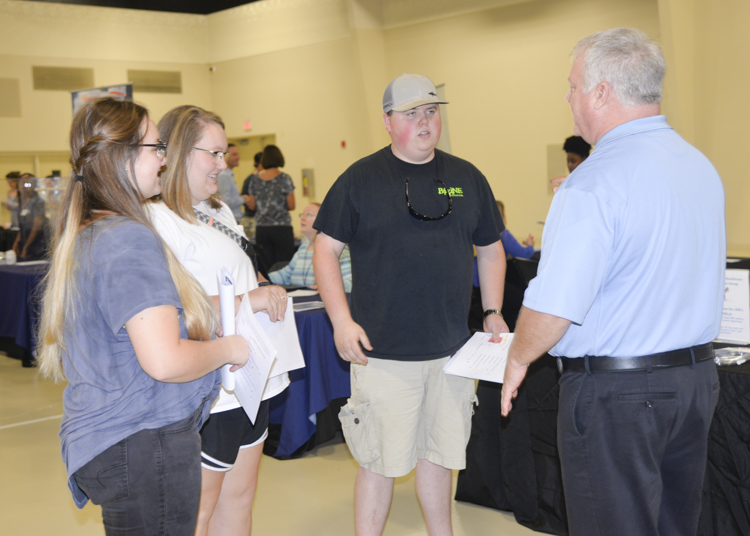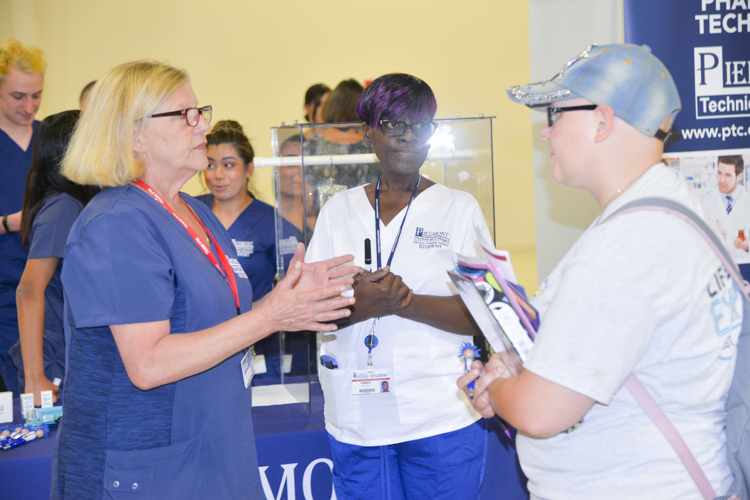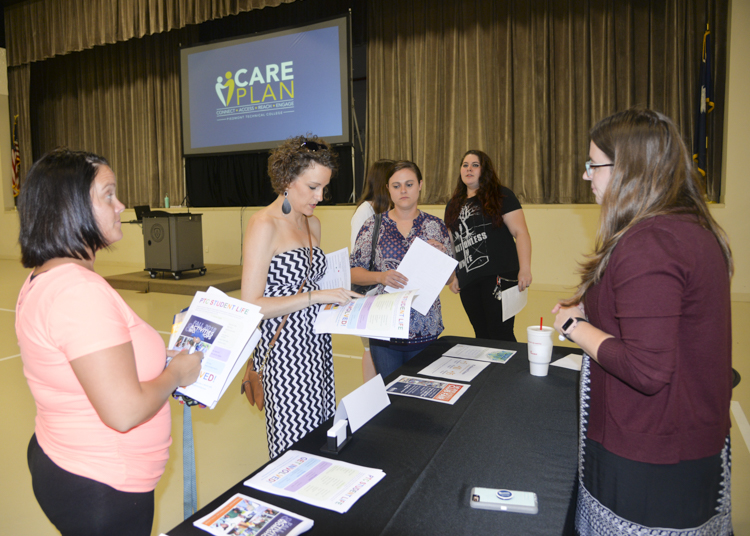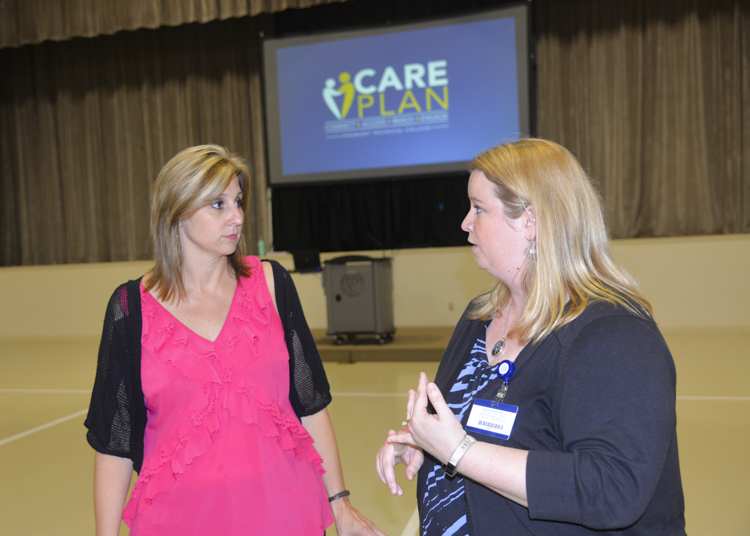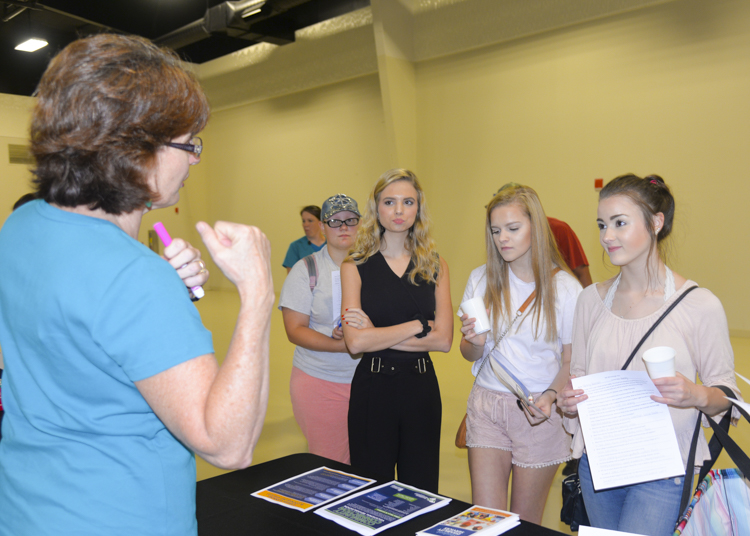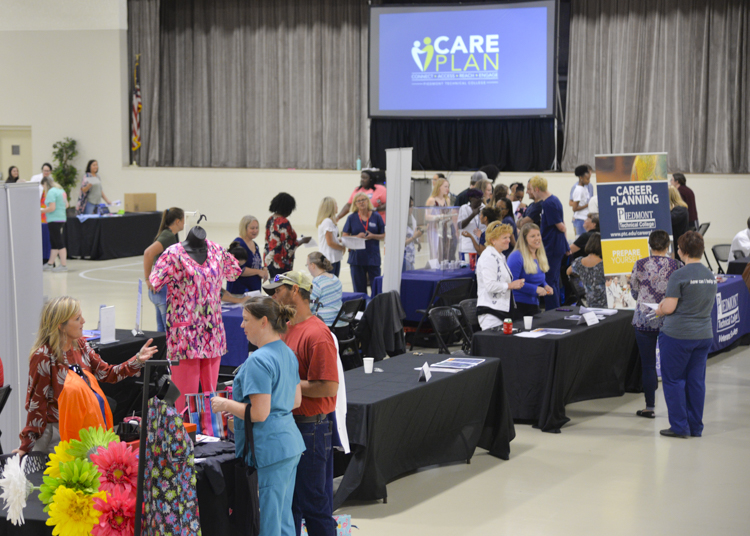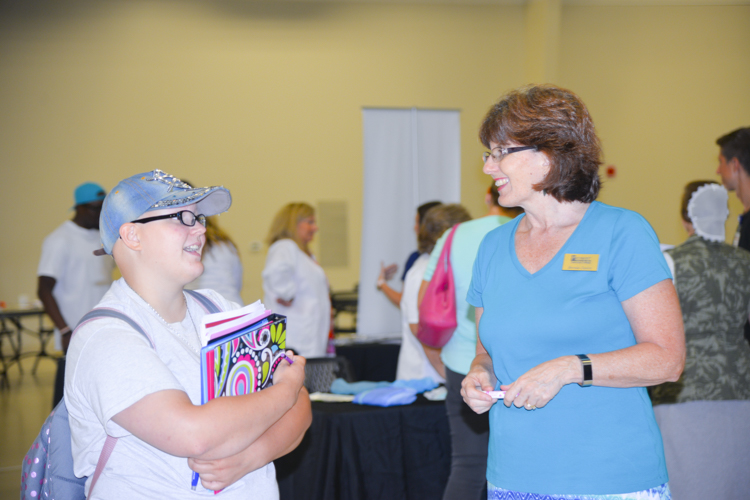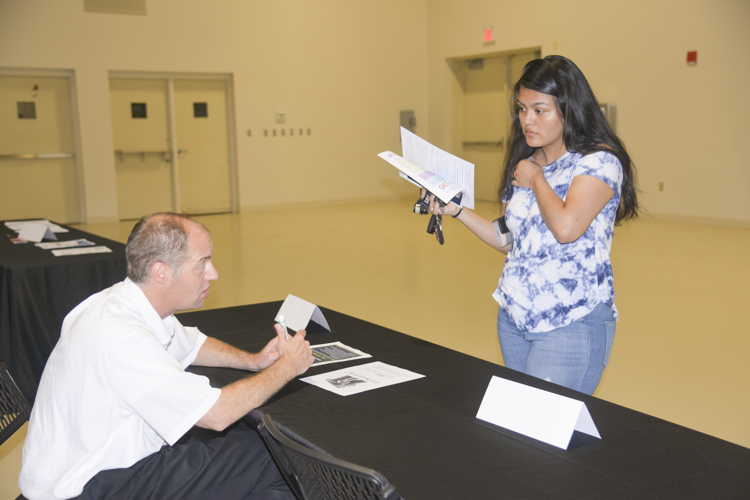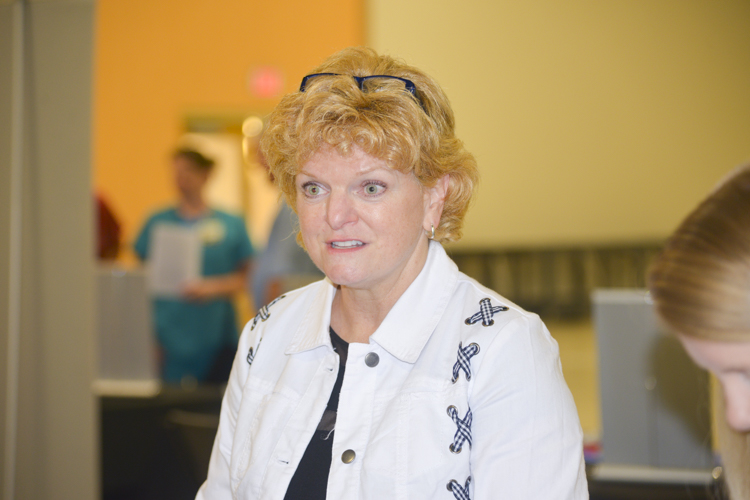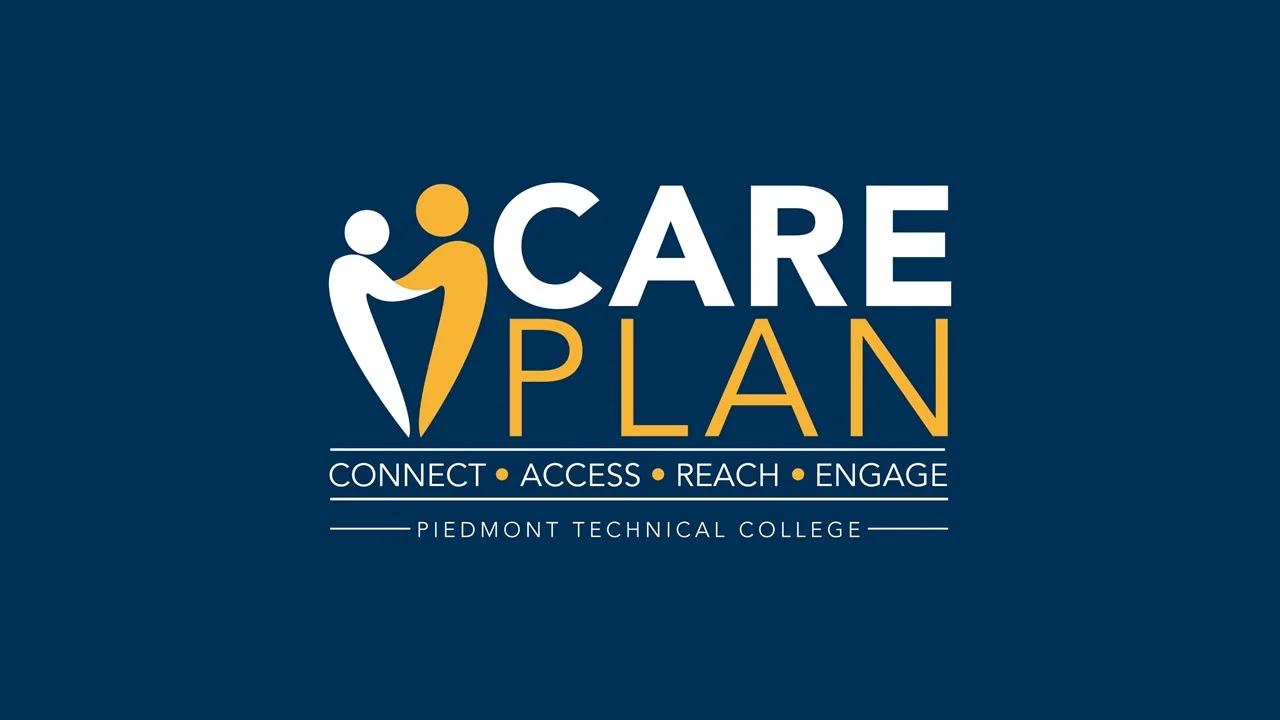The options available to health science and nursing students at PTC are vast. While that’s a good thing, many students enroll with only a generalized notion of what they want to pursue, which may be something health-related, but they aren’t sure exactly where along the spectrum to focus. That’s why customized advising on health science and nursing careers is so critical to properly grounding the initial steps in their journey.
On September 20, 2018, PTC held a grand opening for its long-anticipated CARE Planning Center in Suite 149-A on the Lex Walters Campus-Greenwood. With this resource in operation, students majoring in any health care field can go to a single, centralized location for their advising needs. It’s especially relevant because, historically, students have selected health care majors based on limited or incorrect information. When this happens, they may inadvertently delay their progress and prospects for success.
“Students in the pre-program phase of health science and nursing programs now can follow an individually tailored, guided pathway,” says Carol Paguntalan, director of academic advising. “Those who are tentative about their concentration will take a health care careers course early on to better understand the field. Then they will work with their CAREplan advisors to ensure that their education plan and career goals remain compatible.”
The CAREplan initiative is a Quality Enhancement Plan (QEP) designed to improve retention for health care and nursing students, whose path to a degree involves specific prerequisite courses, grade-point average and testing requirements, and program application processes. A QEP is a requirement for PTC’s reaccreditation with the Southern Association of Colleges and Schools Commission on Colleges. QEPs are five-year plans focused on improving student learning or the environment surrounding student learning. They also support PTC’s mission goal to ensure that students are positioned for success.
“Being engaged on campus leads to better outcomes.”
Paguntalan explained that CAREplan will save students time while improving and streamlining their college experience. It also will strengthen PTC’s overall advising platform. With the CAREplan working as it is designed, students can raise their expectations and bypass unnecessary setbacks on the path to their degrees.
To help foster a sense of community, there will be special group activities for CAREplan students. Students will take pre-program classes together, with some of those classes being taught by faculty who also serve as their advisors.
“Being engaged on campus leads to better outcomes,” Paguntalan says.
Students taking classes at PTC’s other sites still will be able to meet with specially trained advisors on their local campuses.
“The CARE Planning Center will give students ― particularly those who may know they want to work in health care but aren’t sure yet which specialization to choose ― an opportunity to take advantage of a meta-major concept,” said Dr. Jack Bagwell, PTC vice president for academic affairs. “They can stay on the same generalized health care path taking courses common to all health majors as long as they can until they need to step off into more specialized coursework.”
Bagwell said the new CAREplan is one of several special advising initiatives being considered and tested across the PTC system. “We will take what we have learned and apply it across the institution,” he said.
For more information about CAREplan, go to www.ptc.edu/care.
CAREplan Event Gallery
